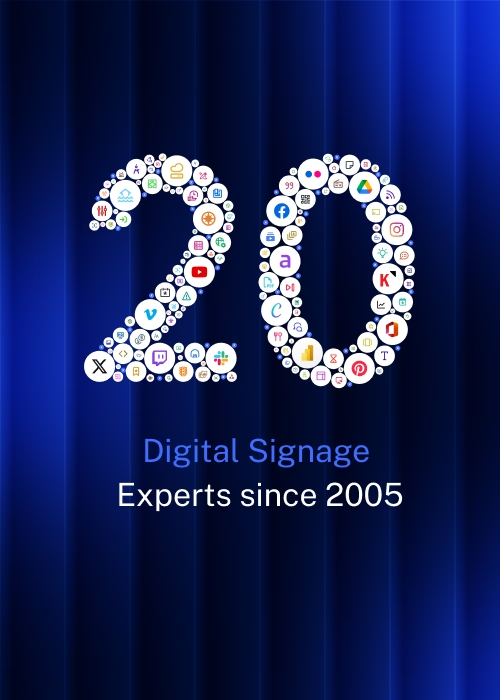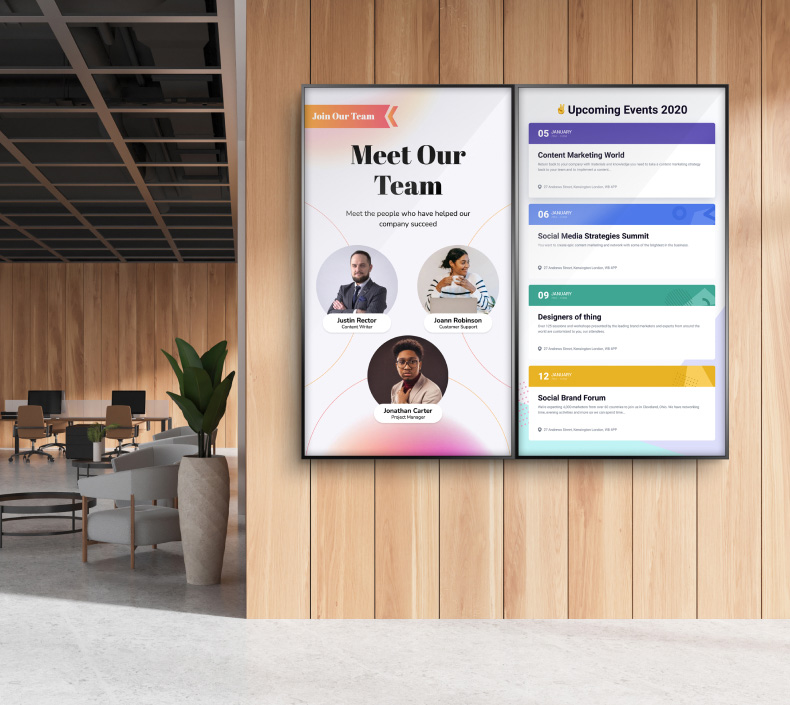What is Tableau Used For?
Tableau software is a leading tool in data visualization and business intelligence. Whether you're a data analyst or a business manager, it’s a platform designed to help you make better data-driven decisions by transforming raw data into understandable visuals. One of Tableau’s major strengths is its ability to allow users to create interactive reports and dashboards, all without the need for extensive coding knowledge. Because of its user-friendly design, Tableau software has been adopted across many industries, including healthcare, finance, retail, and education, making it a versatile tool for professionals looking to enhance their data insights.
Why is Tableau Popular?
The appeal of Tableau lies in its ability to simplify complex data analysis while still offering the advanced capabilities needed by data professionals. Tableau software enables users to interact with data in real-time, providing quick answers to business questions. By allowing non-technical users to explore data independently, Tableau has democratized access to valuable insights, empowering teams across different departments to make data-driven decisions with ease.
The Role of Tableau in Data Visualization
At its core, Tableau software is best known for its data visualization capabilities. It enables users to transform vast amounts of data into interactive charts, graphs, and Tableau dashboards, all of which make it easier to interpret trends and patterns. The drag-and-drop interface of Tableau simplifies the process of creating these visuals, which means that even non-technical users can design stunning, insightful reports without much effort.
Connecting to Data Sources
One of the key features that set Tableau apart from other business intelligence tools is its ability to connect to a variety of data sources. Whether you’re pulling data from Excel, cloud-based systems, or SQL databases, Tableau makes integration seamless.

This flexibility ensures that businesses can visualize and analyze data regardless of where it resides, making it a go-to choice for many organizations.
Interactive Reports for Better Insights
Tableau software allows users to build interactive reports that give deeper insights into business performance. Instead of static charts and graphs, you can create dynamic visuals that respond to filters, selections, and inputs, providing an in-depth look at data trends. This interactivity is crucial for businesses that need to quickly adjust their strategy based on evolving data.
How Tableau Supports Data Analysis and Business Intelligence
Tableau isn’t just a data visualization tool; it also supports advanced data analysis and plays a crucial role in business intelligence. Businesses today rely on analytics software to uncover insights that drive decision-making, and Tableau excels in this space by offering robust analytics features.
Advanced Analytics Features
Tableau’s analytics software includes powerful features like trend analysis, forecasting, and statistical modeling. These capabilities allow users to uncover hidden patterns in data, forecast future trends, and make more informed decisions based on predictive analytics. According to a study by Dresner Advisory Services, 81% of organizations state that Tableau has significantly improved their data analytics capabilities .
Real-Time Data and Big Data Integration
In a world where businesses operate on real-time data, Tableau software supports integration with big data sources, enabling companies to perform real-time analysis and adapt quickly to changes. This is especially valuable for industries like finance and retail, where timely insights can lead to improved performance. Tableau’s ability to connect with big data platforms such as Hadoop and handle massive datasets efficiently is one reason it's considered one of the top business intelligence tools on the market.
Self-Service Analytics with Tableau
One of the biggest shifts in the world of data has been the move toward self-service analytics, and Tableau software is leading this change. Self-service analytics allows users to access and analyze data without needing IT support, fostering independence and agility in business operations.
Simplifying Data Exploration for Non-Technical Users
Traditionally, analyzing data required technical expertise, but Tableau’s drag-and-drop interface makes it easy for non-technical users to explore and manipulate data. This ability to independently create interactive reports and dashboards accelerates decision-making and ensures that all departments have immediate access to the insights they need. In fact, Forrester Research found that organizations with self-service analytics capabilities are five times more likely to make decisions faster than their competitors .
Real-Time Reporting and Data-Driven Decisions
The combination of real-time data and easy reporting tools provided by Tableau means that users can get up-to-date insights at any time. Whether you’re monitoring sales performance or tracking customer behaviors, Tableau dashboards allow for timely, data-driven decisions that can significantly impact the bottom line.
Key Features of Tableau
The success of Tableau software stems from its versatile features that cater to a wide range of data needs. Its intuitive design combined with powerful tools makes it a standout solution for companies aiming to maximize their data’s potential.
Drag-and-Drop Functionality
At the heart of Tableau’s ease of use is its drag-and-drop interface, which allows users to create data visualizations and reports with little effort. This feature is especially appealing for non-technical users who need to manipulate data without having to learn coding or complex database queries.
Collaboration and Data Blending
Tableau features also include collaboration tools that make it easy for teams to work together on projects. Users can blend data from different sources, create shared dashboards, and collaborate in real-time, ensuring that everyone is working from the same set of data. This collaborative approach not only improves productivity but also ensures consistency across different departments.
Security and Governance
For larger enterprises, security is a top priority. Tableau software includes security features such as row-level security and encryption to protect sensitive data, making it suitable for industries with strict regulatory requirements like healthcare and finance.
Use Cases for Tableau in Different Industries
Tableau software is used in many industries to support a wide range of functions. From healthcare to retail, organizations rely on Tableau to streamline their operations and gain deeper insights from their data.
Healthcare
In the healthcare sector, Tableau is used to track patient outcomes, streamline operations, and ensure regulatory compliance. Hospitals can visualize patient data to identify trends in treatment effectiveness, which can lead to better care. Additionally, Tableau dashboards are often used to monitor key performance indicators (KPIs) that improve hospital efficiency.
Finance
Financial institutions use Tableau to analyze customer behavior, manage risk, and optimize investment strategies. For example, a bank might use Tableau to identify patterns in customer spending, which can help tailor financial products more effectively.
Retail
Retailers use Tableau for sales analysis, inventory management, and customer segmentation. For instance, businesses can visualize sales data to understand which products are performing well, track inventory levels, and predict future sales trends. This data-driven approach allows retailers to optimize their stock and improve operational efficiency.
Tableau’s Role in Big Data and Predictive Analytics
As businesses continue to collect larger datasets, Tableau software is well-equipped to handle the challenges that come with big data analysis. Its integration with big data platforms and ability to process vast amounts of information make it an essential tool for organizations dealing with massive datasets.
Handling Big Data
Tableau’s ability to connect with big data sources like Hadoop and Google BigQuery enables users to analyze huge datasets without sacrificing speed or accuracy.

This is crucial for businesses that need to extract insights from large, diverse data sources in real-time.
Predictive Analytics
Tableau also excels in predictive analytics, offering tools that allow businesses to forecast future trends and behaviors. By integrating with R and Python, Tableau provides users with the capability to create predictive models, adding another layer of depth to its analytics software. According to Gartner, 75% of enterprises plan to implement predictive analytics in the next two years , making Tableau’s advanced analytics features more valuable than ever.
Why Tableau is the Right Choice for Data-Driven Organizations
Tableau software stands out as a powerful, user-friendly tool for data visualization and analysis. Its ability to democratize data, making it accessible for both technical and non-technical users, has made it the go-to choice for companies across a variety of industries. Tableau’s blend of self-service analytics, advanced features, and support for big data ensures that businesses can turn data into actionable insights, improving decision-making and operational efficiency.
For organizations aiming to stay ahead in today’s data-driven world, investing in Tableau software provides the adaptability, power, and ease of use needed to thrive. Whether you’re a small business or a large enterprise, Tableau offers the tools you need to unlock the full potential of your data.







